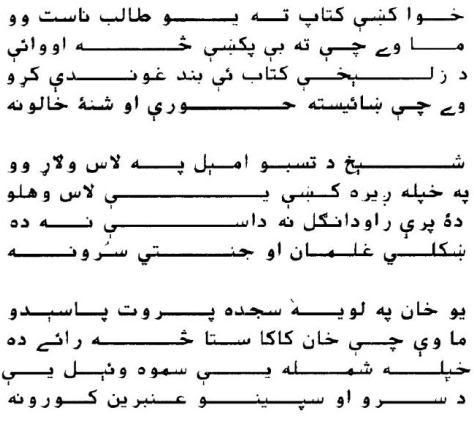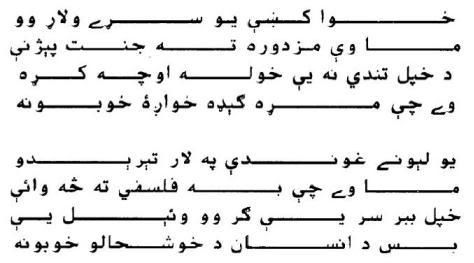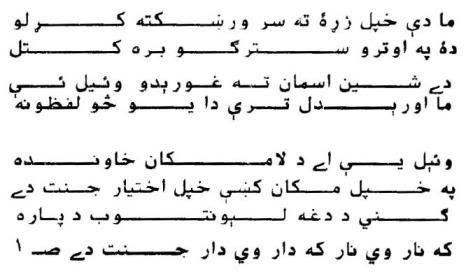US-Pakistan politics aside, I enjoy my longish stays in the US, whenever I visit here, usually in the summers. One reason is the many opportunities this country provides for “the pursuit of happiness,” which, in fact, is enshrined in the American Declaration of Independence as an “inalienable right of man [and woman]” along with life and liberty.
Before you jump to conclusions, I don’t mean the happiness one usually associates with Western cities, and certainly not anything of prurient interest. I am talking about the happiness one derives from learning new things — a new subject, a new language, an occupation, a skill, a sport, an interest or a hobby. You can pretty much do anything here if you set your mind on it. There are no barriers of age, gender or race, nor any social or other constraints. Of course, you have to pay the fees — most of the time.
Early this summer, I signed up for a flying trapeze class — almost — in a facility located along the Hudson River, in lower Manhattan. We usually associate trapeze with circus, where acrobats swing out hanging on to a flying bar, do a few somersaults in the air, and then either land in the clutches of another catcher or fall on a safety net down below. It’s a thrilling sight on a cloudless day against the backdrop of the Hudson River and Jersey skyline. The class is open to everyone, for fun and exercise. The only condition is age — not less than eight years. There is no upper age limit. I easily qualified. But I chickened out at the last minute, though. Falling from high above, even though into a safety net, looked a bit hazardous. But the opportunity is there and the fee is affordable. I might muster enough courage to still join.
On a more serious side, a friend of mine, originally from Lebanon, a brilliant student in school and college, after doing his BS and MS in electrical engineering and physics from MIT in 1991, worked in investment banks and financial companies for over 16 years. This year, he had a change of heart and decided to become a doctor. He applied to Tufts medical college and was accepted. He is likely to graduate in 2013. By the time he finishes residency and becomes a practicing doctor, he will be 50. This is just one such example.
Circumstances compelled me to extend my stay here this year. Having more free time on my hands, I walked into the South Asian Studies Department at the University of Pennsylvania, an Ivy League university, to see what was available this semester. Going through the material posted on the bulletin boards, I was amazed at the variety of subjects. There were courses in studies on Imams Bukhari and Tirmizi; courses in Islamic history, Ottoman history and modern history of Afghanistan and Pakistan; language courses were offered in Arabic, Persian, Urdu, Hindi, Punjabi and Bengali, and in Urdu literature written about the Partition; there was a also a course on learning to play tabla and sitar. And, then I found a course in Pashto poetry. I chose to attend this class, more out of curiosity than anything else.
The class teacher is a young American from Maine who has spent considerable time in Afghanistan and Pakistan. He speaks Pashto fluently in Afghan accent, and knows the grammar and nuances of the language better than most educated Pakhtuns. A young woman from Baffa, district Mansehra, has joined him this year on a Fulbright scholarship, to assist him in teaching basic Pashto to beginners.
After attending the first two classes, and studying two poems, one by Ajmal Khattak and the other by Shafiullah Babarzai, an Afghan poet, I was hooked, and am determined to stick to the course till the end. It’s a pity that I won’t find such courses, say, in Qaid-e-Azam University in Islamabad. Nor could I find any good books on the subject in some of the biggest bookstores in Islamabad.
Ajmal Khattak’s poem is more relevant today’s Pakistan than, perhaps, it was when it was written, many years ago. It is titled Jannat, or Paradise. Here is the poem, as I translated and paraphrased it, of course with helpful inputs from my teacher:
PARADISE:
I asked a mullah, what do you think is Paradise like?
He ran his fingers through his beard and said
“Fresh fruits and rivers of milk”
A talib (student) was sitting nearby
I asked him, what do you say?
He put aside the book of Zulekha he was reading, and said
“Beautiful women with (tattooed) green dots on their cheeks”
A shaikh stood nearby, rolling his tasbeeh (rosary)
He stroked his beard and said (questioning the talib):
“No, it’s not like that!”
“Paradise is beautiful servant boys and heavenly music.”
A khan raised his head from a lengthy sajda (prostration in prayer)
What is your opinion, Khan Sahib? I asked
He adjusted his turban and said
“The luxuriously furnished and perfumed mansions”
Nearby, a labourer stood in his tattered clothes
I asked him, do you know what Paradise is?
He wiped the sweat from his brow and said
“It’s a full stomach and deep slumber”
A man, in dishevelled hair, passed by, lost in his thoughts
I asked, what do you say, philosopher?
Smoothing his hair, he said:
“It’s nothing but dreams conjured up to please man”
(Confused) I looked down into my heart and then looked up into the blue sky; and heard a murmur in reply: “Paradise is your home where you are the master, and at liberty; and if you cannot attain the freedom, then sacrifice on the path to freedom, as an ideal, is Paradise. Be it hellfire or the gallows”
Who says Pakhtuns produce only poppy? They produce wonderful poetry, too.
Happiness, as I said in the beginning, is doing things that one enjoys doing, not necessarily for money but also for self-satisfaction, self-enhancement and self-actualisation. And the societies that provide such learning opportunities end up enriching themselves in the process.
Jannat, an audio recording:
[audio:http://pakistaniat.com/images/Jannat-Ajmal- Khattak-Baba.mp3]
Here is the poem ‘jannat’ is Pashto script.























































AISHA:
I agree- all I am saying is that after inspiration we need concrete reality based action. Of course inspiration needs to come from some where.
See there is difference between romance and reality. Romance is like “candle light dinner” and reality is “washing dishes afterwards”.
Thinking in same line, you may want to say. “Life is unpredictable so let’s eat dessert first” (that may not be all bad) LOL
what a master piece….
Why is that we always fall in to doubts when it comes to form an openions about Pashtuns? They are normal human beings, kept isolated because they follow a uinque code of life and ethics as any other tribe in Pakistan or else where. I am offended by the sentance in this article, “Who says Pakhtuns produce only poppy? They produce wonderful poetry, too”
Poppy………..I have never seen this thing in my life, I am a Pashtun, born and raised to a set of values and traditions that I am so proud of. I was taught honesty, bravery, trust, respect, sacrifice and all the good things that you can imagine. My grandfather served Pakistan Police for 40 years, retired as DIG and died with only 47,000 rupees left in his bank account that he had spared for his funeral. nOBODY AND I MEAN NOBODY HAS THE THE RIGHT TO CRITISIZE ANY TRIBE IN THE BOUNDERIES OF PAKISTAN FOR WHAT EVER REASONS. To understand a Pashtun and his heritage, values and culture………you will have to live a lifetime in their company to find out how they live as part of our society. Try indulge in to our poetry, and it will take you to places that you will have never imagined, it will give you a picture of love, respect and not just poetry fr the sake of poetry.
Dil-Sooz:
With all do respect to the Holy Quran for which none can be compared, poetry and literature has also served as windows into society and human nature which otherwise go ignored. These genres are often times used to awaken society to its corruption and immorality. I have learned much about the harsh realities and struggles of the past from poetry and literature.
“Dil-Sooz” says:October 16th, 2009 1:36 am
As much as poetry in Pushto or any other language may work as “marham” (ointment) on broken hearts (Dil-Sooz) we should see to it that poetry by it’s nature is given to exaggeration. It tends to romantacize the harsh realities of life. It creates psychological defense mechanisms of fantasy and denial–sometimes.
Thought provoking article and beautiful poem.
My husband was born and educated in Pakistan. I was so surprised by the things he was not taught in school, things he had never even heard of regarding history, the arts, or the rest of the world. Luckily for him we married my junior year in college and I shared much of what I had learned during my academic career with him. I say “luckily for him” because it was so easy to share my enthusiasm with him for the knowledge I was being exposed to at the time.
Born and raised in America, I too appreciate all that is available to help one in their pursuit of happiness. Indeed, one can aspire to do anything here but I believe the opportunities exist elsewhere in the world too. The only difference is that people have hope and feel invigorated, encouraged, and empowered to reach for “their” dreams here.
For the most part it is very easy to simply not take part in the westernized or rather “worldy ills of society” which we find an “afront” to our sense of righteousness or morality. Ah, but such evils exist in every corner of the world if that is what one seeks.
I have learned that even in the land of “Golden Opportunity” one still has to fight for the pursuit of happiness which in my case is not to have my children or myself subjected to things on a daily basis which corrupt the soul while we pursue our dreams. (Ah, yes, even parents can continue to pursue their dreams). There are times when we just have to turn our heads the other way as we strive to find what makes us happy. Only in Paradise does such a Utopia of pure happiness or contentment truly exist.
Aisha
Rowan University 2001